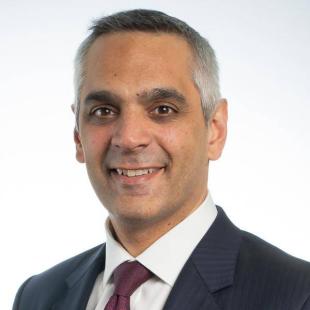Solar
Key contacts
With an active presence in the international power sector for 30 years, CMS has a market-leading practice which has seen it advise industry players across the globe.
Our dedicated power team has specialist knowledge of each stage of a project’s development, from the initial feasibility study through to operation. We also have an intimate familiarity with government processes and regulatory regimes, having advised on the privatisation and restructuring of multiple national electricity markets worldwide.
This extensive experience has meant that we have acted for many leading players in the solar industry including developers, investors, financiers, operators, offtakers, suppliers, customers and other stakeholders. Accordingly, we know where the problems and pitfalls lie and are able to guide you through them every step of the way.
Our recent experience related to solar includes advising:
- Equinor on the purchase of 100% of shares in the Polish company Wento, which develops photovoltaic and wind projects, from Enterprise Investors, a private equity fund. The deal also included the acquisition of a 1.6 GW portfolio of photovoltaic projects. The value of the transaction amounted to EUR 91 million, before net cash adjustments.
- The Ministry of Energy of Saudi Arabia on Round Three of Saudi Arabia's National Renewable Energy Program, comprising four projects with a combined generation capacity of 1,200 MW of solar PV and a total net contract value of USD 8.4bn.
- ENI in connection with the acquisition of 3 photovoltaic projects in Spain from X-Elio.
- montanSOLAR on the development and the financing of two photovoltaic park projects in France representing a cumulative power of 34 MW.
- Photosol on financing and refinancing ten solar projects financed by CEPAC, BPI and La Banque Postale.
- Nordex SE on its execution of a put option agreement for the potential sale of Nordex's European wind and photovoltaic development pipeline to RWE.
- Solarian Holdings Ltd on the acquisition of a 2.25 Megawatt photovoltaic power plant in Bulgaria from Julian Torchanov and Mat Ltd. The project was financed by Unicredit Bulbank.
- Greensource on the financing of the construction of Hungarian PV plants (65 Mwp). Lender is Kommunalkredit Austria.
- AQUILA CAPITAL on the acquisition of shares of companies hold by Infraventus (Astros Irreverentes and Prettysource) which hold rights of PV projects with 6MW each.
- BRUC on the acquisition of a portfolio of 8 greenfield photovoltaic projects in Andalucía, Spain with a capacity of 350 MWp owned by Magtel.
- EDF Renewables UK in partnership with Octo Energy: on identifying and delivering 200 MW of hybrid solar and battery storage projects in England and Wales
- ACWA Power, Blackrock and Crescent Capital on the sale of ACWA Power CF Karad PV Park and NOMAC Bulgaria, a 60 MWp photovoltaic plant Karadzhalovo in Bulgaria, to Enery Development GmbH, an Austrian investor and project developer.
- Octopus Renewables Infrastructure Trust plc on its acquisition of a 100% interest in a portfolio of solar PV assets located throughout the UK for an initial cash consideration of £144.3m.
To find out more about other related services you can visit the Energy & Climate Change expertise section.
Legal experts for Solar




















.jpg)






